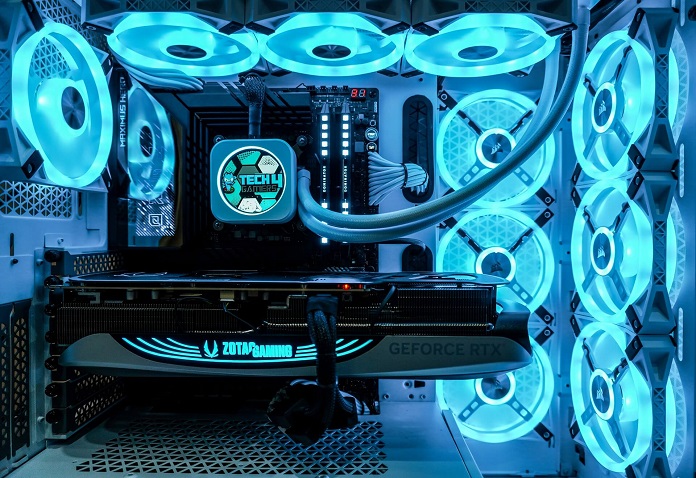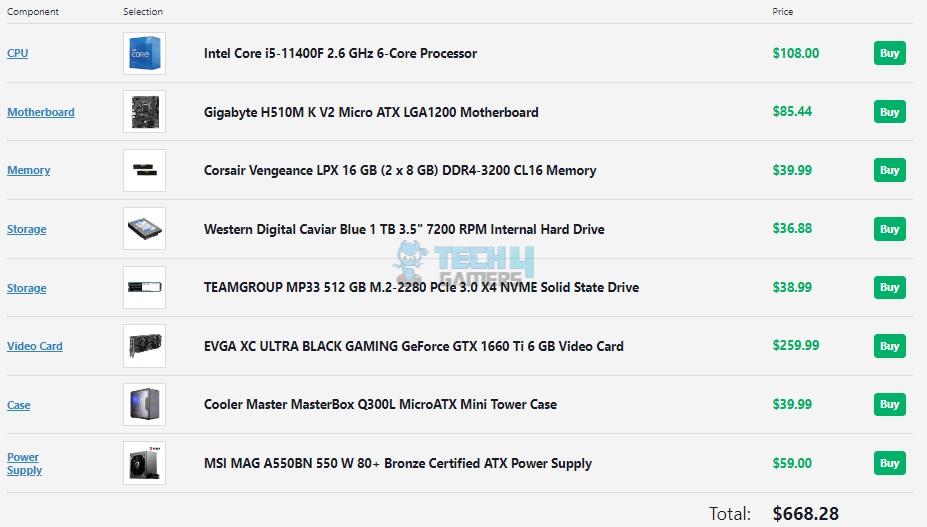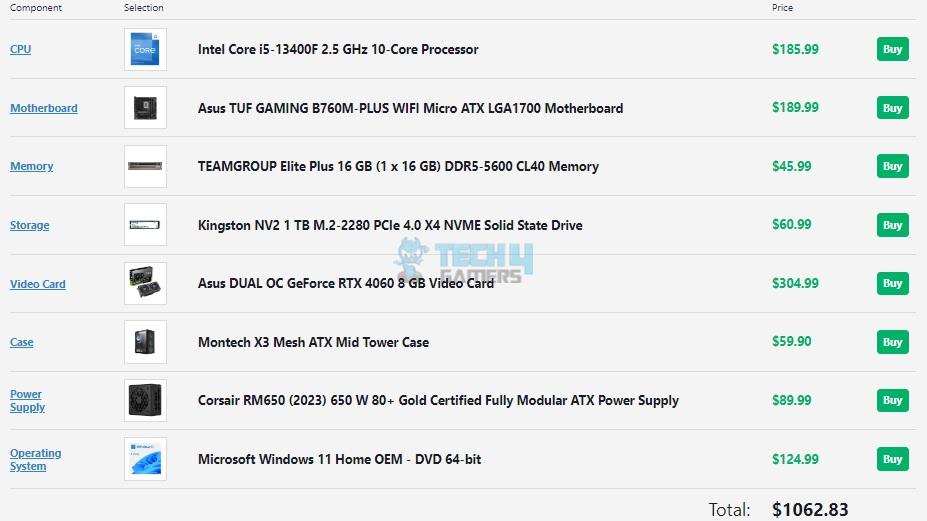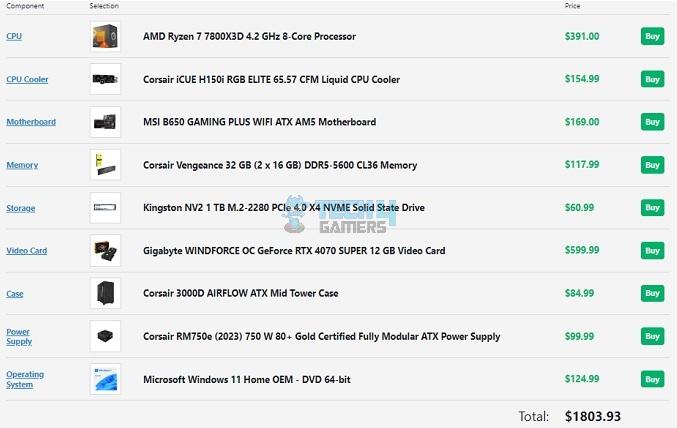- Pre-built gaming systems have somewhat redeemed themselves in the past few years, with great options fitting different needs.
- As with pre-built computers, it’s vital that you’re familiar with your workload needs and that you get a system fitting those needs.
- Research is key; you must ensure the build you’re getting has a solid set of parts, a reasonable price, and a decent warranty period.
PC gamers have been divided on pre-built PCs for a long time. Most professionals and content creators have been skeptical about them for various reasons and haven’t recommended them. However, there isn’t much noise around them anymore, which struck me one day. You know what I realized? Pre-built PCs have become really good over the years!
“But Why Should I Even Buy A Pre-Built?”

While pre-built PCs have never been all that popular, they have offered one advantage that has been the most attractive: no hassle of building yourself. While people like myself may scoff at that thought, the less tech-savvy people out there appreciate it. Picking compatible parts can also be daunting to some, and that’s another aspect where pre-built PCs are your savior.
And that’s not it; pre-built PCs sometimes offer excellent value, with the occasional discounts upping the value further, as I’ll show you. Almost all pre-built PCs come with pre-installed, activated OS, another bonus. However, an activated Windows should be the least of your concerns on a budget, as Windows is still completely usable without a license.
But Be Careful!
But, of course, just because you don’t have to worry about compatibility doesn’t mean you can pick just any pre-built system. It’s important to make sure you get a PC with the right parts for you and ones that don’t bottleneck.
I’ve picked out a few pre-built systems available right now to highlight that, yes, you can absolutely find the right pre-built system for your needs.
For The Budget-Oriented Users
I’ll admit that there are not many great options for budget users, but some searching led me to a few, among which I chose the ASUS ROG STRIX G10CE build. Inside it is a Core i5-11400F, a GTX 1660 Ti, 16GB of DDR4 memory, a (presumable PCIe 3.0 NVMe) 512GB SSD, and a 1TB hard drive, all for $649.
ASUS knew what it was doing when compiling this build; Benchmarks from YouTuber ShadowSeven show this is a fantastic 1080P Ultra budget combination.

The cost of a similar PC came out to $668 on PCPartPicker, excluding the OS. Note that the 1660 Ti is no longer in production, and you can instead pick something like an RX 6600, but I did not find a build with that card in this range.
For The Mid-Rangers
After lots of digging, I found the Yeyian Tanto, which offers power-packed specifications for $899. It features the Core i5-13400F on an ASUS B760 motherboard with WiFi (model not specified), RTX 4060, 16GB (single-channel) of DDR5 memory @ 5600, and a 1TB PCIe Gen 3 NVMe SSD. A 650W 80+ Gold PSU provides the power.
Benchmarks provided by the manufacturer promise a 75 FPS average in Cyberpunk 2077, 80 FPS in Forza Horizon 5, and 55 FPS in Starfield, all at 1080P and the highest preset.

I would have liked dual-channel memory, and the use of single-channel memory just highlights the occasional incompetence that some manufacturers show. Still, a similar build I compiled costs $1062, a whopping $162 extra. You can upgrade to 32GB dual-channel down the line.
Read: Upgrading Pre-built PCs: The Definitive Guide
For FPS Gaming
Finally, I sought a FPS-focused build and selected SkyTech’s Eclipse Light Gaming PC, which has a superb $1799 price tag. It features the Ryzen 7 7800X3D, an RTX 4070 Super, 32GB of DDR5-5200 memory, a 1TB M.2 PCIe Gen 4 NVMe SSD, and a 360mm AIO. The case has four fans, and an 80+ Gold 750W power supply powers everything.

The build I compiled to match this costs $1803 (including an $8 discount) with the Windows 11 Home license. Keep in mind that I chose the Corsair H150i RGB for the AIO, while cheaper 360mm options are available. The exact motherboard model isn’t specified, and I chose an entry-level B650 board (enough to handle the 7800X3D).
Gaming benchmarks provided include an average of 95 FPS in Starfield at 1080P at the highest preset.
Final Thoughts
Buying a pre-built PC isn’t as bad as it used to be. Even then, you could still find a good system by doing some searching. But now, it seems more manufacturers are offering balanced gaming PCs in different price segments that you can buy for the same price as a custom-built system (or less!). It’s still important to do your research and pick a build that A) fits your needs, B) has a balanced set of parts, and C) isn’t overpriced.
Thank you! Please share your positive feedback. 🔋
How could we improve this post? Please Help us. 😔
[Editor-in-Chief]
Sajjad Hussain is the Founder and Editor-in-Chief of Tech4Gamers.com. Apart from the Tech and Gaming scene, Sajjad is a Seasonal banker who has delivered multi-million dollar projects as an IT Project Manager and works as a freelancer to provide professional services to corporate giants and emerging startups in the IT space.
Majored in Computer Science
13+ years of Experience as a PC Hardware Reviewer.
8+ years of Experience as an IT Project Manager in the Corporate Sector.
Certified in Google IT Support Specialization.
Admin of PPG, the largest local Community of gamers with 130k+ members.
Sajjad is a passionate and knowledgeable individual with many skills and experience in the tech industry and the gaming community. He is committed to providing honest, in-depth product reviews and analysis and building and maintaining a strong gaming community.


 Threads
Threads

